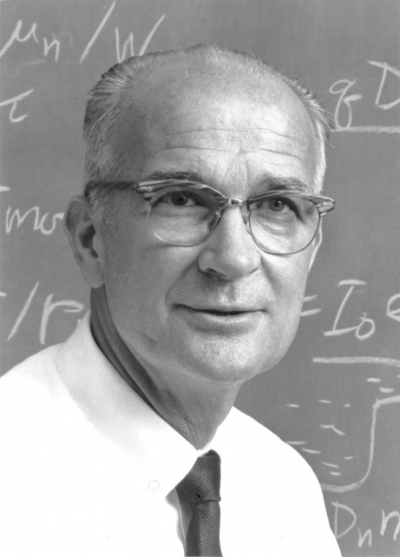A bipolar junction transistor (BJT) is a type of transistor that uses both electrons and electron holes as charge carriers. In contrast, a unipolar transistor, such as a field-effect transistor, uses only one kind of charge carrier. A bipolar transistor allows a small current injected at one of its terminals to control a much larger current flowing between the terminals, making the device capable of amplification or switching.
BJTs use two junctions between two semiconductor types, n-type and p-type, which are regions in a single crystal of material. The junctions can be made in several different ways, such as changing the doping of the semiconductor material as it is grown, by depositing metal pellets to form alloy junctions, or by such methods as diffusion of n-type and p-type doping substances into the crystal. The superior predictability and performance of junction transistors quickly displaced the original point-contact transistor. Diffused transistors, along with other components, are elements of integrated circuits for analog and digital functions. Hundreds of bipolar junction transistors can be made in one circuit at very low cost.
Bipolar transistor integrated circuits were the main active devices of a generation of mainframe and mini computers, but most computer systems now use integrated circuits relying on field-effect transistors. Bipolar transistors are still used for amplification of signals, switching, and in digital circuits. Specialized types are used for high voltage switches, for radio-frequency amplifiers, or for switching high currents.
William Bradford Shockley Jr. (February 13, 1910 – August 12, 1989) was an American physicist and inventor. He was the manager of a research group at Bell Labs that included John Bardeen and Walter Brattain. The three scientists were jointly awarded the 1956 Nobel Prize in Physics for "their researches on semiconductors and their discovery of the transistor effect".
Partly as a result of Shockley's attempts to commercialize a new transistor design in the 1950s and 1960s, California's "Silicon Valley" became a hotbed of electronics innovation. In his later life, while a professor of electrical engineering at Stanford University, Shockley became a proponent of eugenics. A 2019 study in the journal Intelligence found him to be the second-most controversial (behind Arthur Jensen) intelligence researcher among 55 persons covered.

1951Jul, 4
William Shockley announces the invention of the junction transistor.
Choose Another Date
Events on 1951
- 11Apr
President Truman's relief of General Douglas MacArthur
Korean War: President Harry Truman relieves General of the Army Douglas MacArthur of overall command in Korea. - 22Apr
Battle of Kapyong
Korean War: The Chinese People's Volunteer Army begin assaulting positions defended by the Royal Australian Regiment and the Princess Patricia's Canadian Light Infantry at the Battle of Kapyong. - 25Apr
Battle of Kapyong
Korean War: Assaulting Chinese forces are forced to withdraw after heavy fighting with UN forces, primarily made up of Australian and Canadian troops, at the Battle of Kapyong. - 3May
Harry Truman
The United States Senate Committee on Armed Services and United States Senate Committee on Foreign Relations begin their closed door hearings into the dismissal of General Douglas MacArthur by U.S. President Harry Truman. - 15Oct
Combined oral contraceptive pill
Mexican chemist Luis E. Miramontes conducts the very last step of the first synthesis of norethisterone, the progestin that would later be used in one of the first three oral contraceptives.

 English
English  español
español  français
français  português
português  русский
русский  العربية
العربية  简体中文
简体中文 